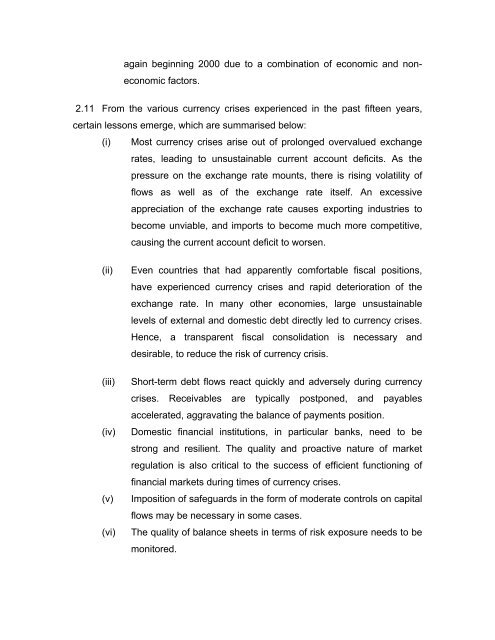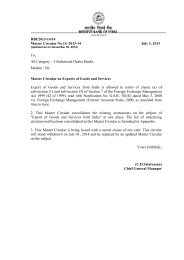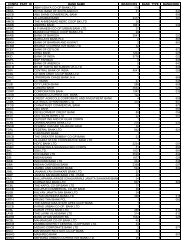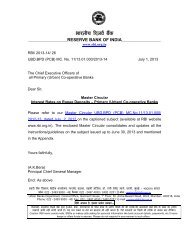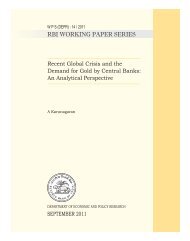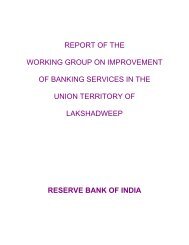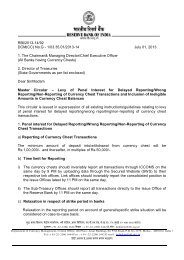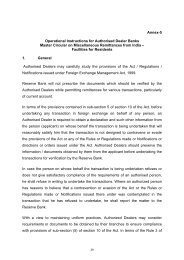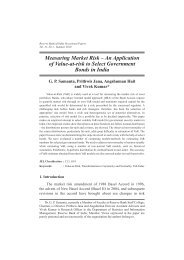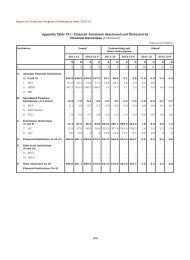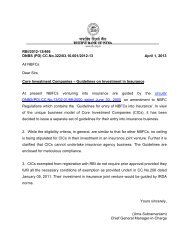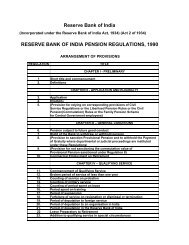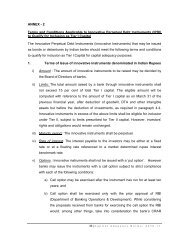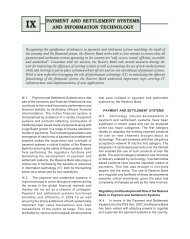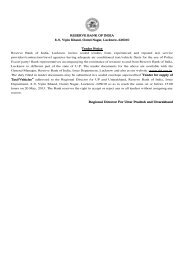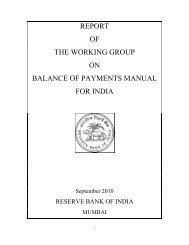CHAPTER 2 OVERVIEW OF FULLER CAPITAL ACCOUNT ...
CHAPTER 2 OVERVIEW OF FULLER CAPITAL ACCOUNT ...
CHAPTER 2 OVERVIEW OF FULLER CAPITAL ACCOUNT ...
Create successful ePaper yourself
Turn your PDF publications into a flip-book with our unique Google optimized e-Paper software.
again beginning 2000 due to a combination of economic and non-<br />
economic factors.<br />
2.11 From the various currency crises experienced in the past fifteen years,<br />
certain lessons emerge, which are summarised below:<br />
(i) Most currency crises arise out of prolonged overvalued exchange<br />
rates, leading to unsustainable current account deficits. As the<br />
pressure on the exchange rate mounts, there is rising volatility of<br />
flows as well as of the exchange rate itself. An excessive<br />
appreciation of the exchange rate causes exporting industries to<br />
become unviable, and imports to become much more competitive,<br />
causing the current account deficit to worsen.<br />
(ii) Even countries that had apparently comfortable fiscal positions,<br />
have experienced currency crises and rapid deterioration of the<br />
exchange rate. In many other economies, large unsustainable<br />
levels of external and domestic debt directly led to currency crises.<br />
Hence, a transparent fiscal consolidation is necessary and<br />
desirable, to reduce the risk of currency crisis.<br />
(iii) Short-term debt flows react quickly and adversely during currency<br />
crises. Receivables are typically postponed, and payables<br />
accelerated, aggravating the balance of payments position.<br />
(iv) Domestic financial institutions, in particular banks, need to be<br />
strong and resilient. The quality and proactive nature of market<br />
regulation is also critical to the success of efficient functioning of<br />
financial markets during times of currency crises.<br />
(v) Imposition of safeguards in the form of moderate controls on capital<br />
flows may be necessary in some cases.<br />
(vi) The quality of balance sheets in terms of risk exposure needs to be<br />
monitored.


